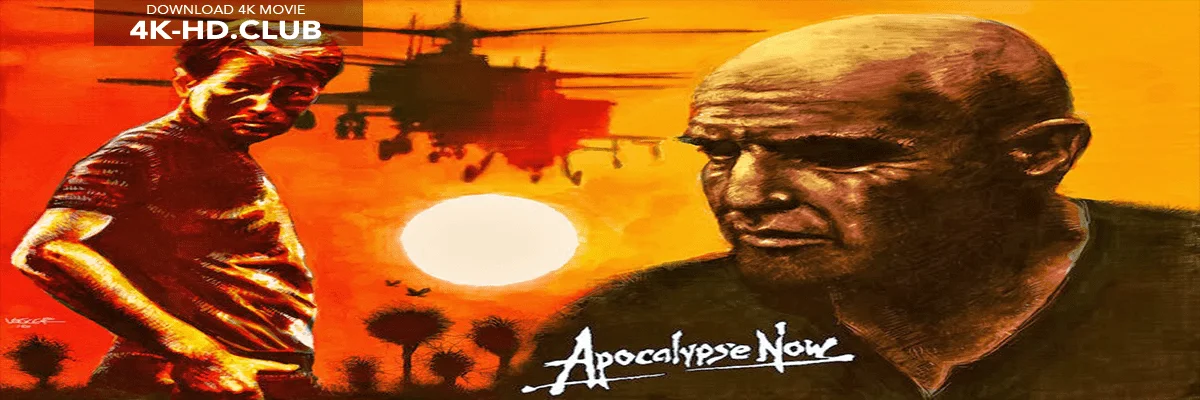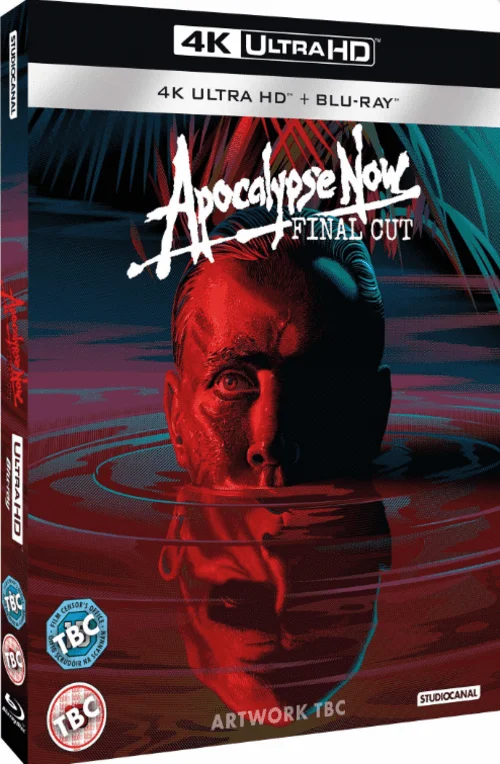
Apocalypse Now 4K 1979 Final Cut
Added: 27-08-2019, 15:45 in All 4K Movies / Drama 4K
Country:
Producer:
Francis Ford Coppola
Cast:
Marlon Brando, Martin Sheen, Robert Duvall, Frederic Forrest, Sam Bottoms, Laurence Fishburne, Albert Hall, Harrison Ford, Dennis Hopper, G.D. Spradlin, Jerry Ziesmer, Scott Glenn, Bo Byers, James Keane, Kerry Rossall.
IMDB 8.4
File Size: 87.04 GB
Film Description
The stunning Apocalypse Now movie is available for download 4k sample, also this version has Final Cut, which makes it even better. During the Vietnam War, a special agent travels up the river to Cambodia with the order to find and kill a half-crazy colonel who created in a remote area something like his own kingdom of violence. Along the way, he witnesses the world of the horrors of war.
Info Blu-ray
Video
Codec: HEVC / H.265 (57.3 Mb/s)
Resolution: Native 4K (2160p)
HDR: Dolby Vision + HDR10
Aspect ratio: 2.35:1
Original aspect ratio: 2.39:1
Resolution: Native 4K (2160p)
HDR: Dolby Vision + HDR10
Aspect ratio: 2.35:1
Original aspect ratio: 2.39:1
Audio
#English: Dolby Atmos
#English: Dolby TrueHD 7.1 (48kHz, 24-bit)
#English: Dolby TrueHD 7.1 (48kHz, 24-bit)
Subtitles
English, English SDH, French, Spanish
Download
File size: 87.04 GB
Is Link Dead? Let us know and we'll replace the link. Report
We now have
Trailer Apocalypse Now 4K 1979 Final Cut
Related movies
Full Metal Jacket 4K 1987
22-09-2020, 01:23
Drama 4K
Smoke Over London 4K 1966
20-08-2021, 17:22
Comedy 4K
The Score 4K 2001
18-10-2022, 22:50
Drama 4K
Wyrmwood: Apocalypse 4K 2021
19-08-2022, 10:20
Horror 4K
Inferno 4K 2016
25-08-2020, 12:32
Adventure 4K
Rambo III 4K 1988
23-11-2018, 15:20
Adventure 4K
Comments (2)
Best UHD Movies
What kind of movie quality do you prefer?

